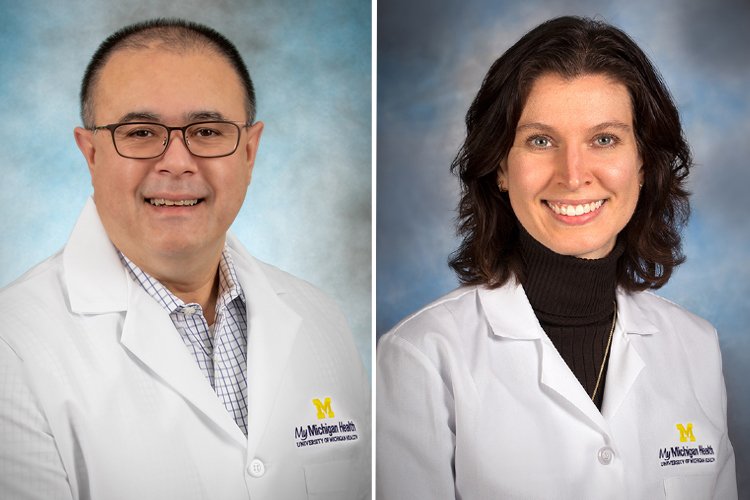New Advanced Structural Heart Procedure Now Available Locally

Omar Ali, M.D., and Susan Sallach, M.D.
MyMichigan Health’s Structural Heart Clinic was developed based on best practices for treating patients with heart valve disease. The Clinic is specifically designed to evaluate patients for advanced heart valve treatment, including a new minimally-invasive procedure to repair the tricuspid valve using the TriClipTM transcatheter edge-to-edge repair (TEER) system.
As a leader in structural heart, MyMichigan Medical Center Midland joins only a select few Michigan hospitals and approximately 100 initial sites across the country to perform this advanced TriClip procedure, which was approved by the U.S. Food and Drug Administration (FDA) in April 2024. This procedure is the fourth advanced structural heart procedure that MyMichigan offers as a part of its robust Structural Heart Program which started in 2016 with transcatheter aortic valve replacement (TAVR). In addition to TAVR, MyMichigan Health offers transcatheter mitral valve repair (TMVr) using MitraClip™ therapy, as well as the treatment of non-valvular atrial fibrillation using the WATCHMAN FLX™ Left Atrial Appendage Closure (LAAC) Device Implant.
“The tricuspid valve is one of four valves that control blood flow through the heart. It separates the upper and lower right chambers and is crucial for allowing blood to flow from the heart to the lungs,” said Cardiologist/Advanced Cardiac Imaging Specialist Susan Sallach, M.D. “If this valve doesn’t seal fully when it closes, some of the blood can flow backward within the heart instead of moving forward to the lungs. This not only forces the heart to work harder, it can also cause a range of debilitating symptoms, including swelling in the abdomen, legs or neck veins; extreme tiredness or fatigue; shortness of breath; abnormal heart rhythms; and/or pronounced throbbing in the neck veins.”
Tricuspid regurgitation affects an estimated 1.6 million Americans. Patients with tricuspid regurgitation are extremely high risk for any type of surgical intervention, so historically they have just been monitored and treated with diuretics. The TriClip procedure is a minimally invasive way to repair the tricuspid valve without the need for traditional open-heart surgery. During the procedure, an interventional cardiologist places the TriClip device on two or more of the tricuspid valve leaflets. These valve leaflets are like the little doors that open and close to regulate blood flow through the valve.
“We are extremely pleased to be able to offer this advanced, minimally-invasive heart valve procedure to patients across the region,” said Interventional Cardiologist and Structural Heart Disease Specialist Omar Ali, M.D. “By reducing leakage in the tricuspid valve, the TriClip helps restore proper blood flow and eases the strain on the heart. If left untreated, tricuspid regurgitation can lead to progressive congestive heart failure, heart enlargement, and early death.”
Clinical outcomes have been promising, and patients with severe, symptomatic tricuspid regurgitation have benefited from this innovative approach. Typically, people who receive TriClip therapy require only a short hospital stay. Those who would like more information about MyMichigan Health’s comprehensive Structural Heart Program may visit www.mymichigan.org/structuralheart.
